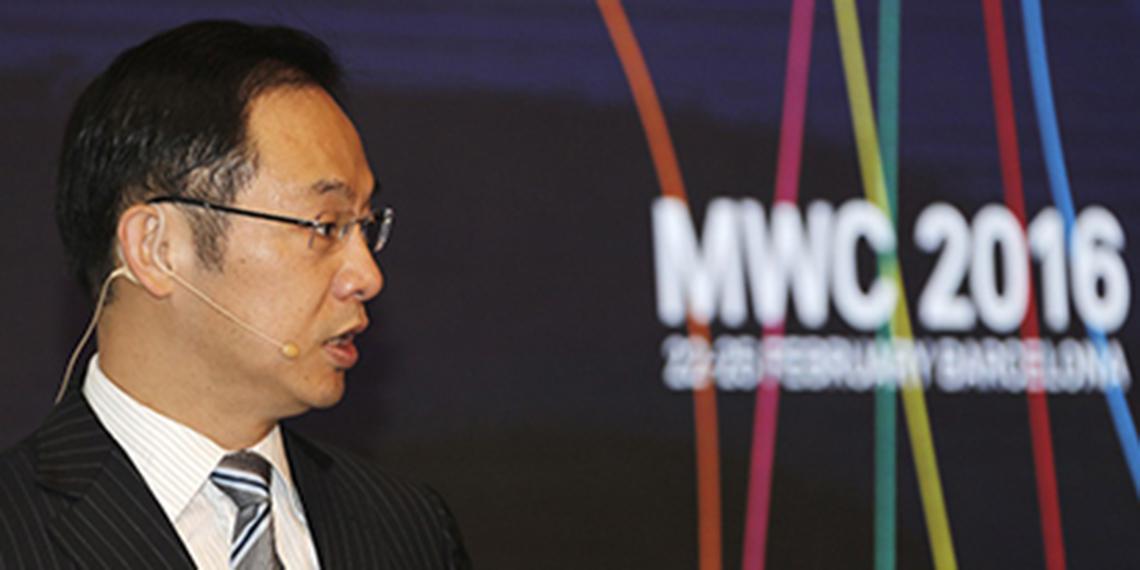Ahead of this year's Mobile World Congress, Huawei has unveiled its five 'Big Initiatives' for the telecom industry to accelerate its digital transformation. The Big Initiatives and the resulting solutions represent the company's long-term commitment to building a better connected world through extensive collaboration across the industry.
The initiatives represent new opportunities for telecom operators in the Middle East and worldwide, foreseeing a potential $100 billion video industry market, a $1 trillion enterprise cloud market, and the number of IoT connections expected to grow 10-fold. Huawei describes the five initiatives as Big Video - Everywhere, Big IT - Enabling, Big Operation - Agile, Big Architecture - Elastic, and Big Pipe - Ubiquitous.
During this year's Congress, Huawei is also planning to unveil at least one new addition to its rapidly growing consumer device lineup. New agreements are further expected with leading telecom operators from across the Middle East focusing on the development of smart cities, Internet of Things applications and supporting governments' digital transformation agendas.
"Digital transformation is a new engine for telecom industry growth, and it will also empower the innovation of other industries," said William Xu, Executive Director of the Board and Chief Strategy Marketing Officer of Huawei. "Huawei will continue to open up platform capabilities to help carriers to build an open, collaborative, and win-win industry ecosystem to accelerate digital transformation."
According to forecasts, by 2025 there will be four billion new broadband users, more than 100 billion things will be digitally connected, and every person's consumption of data will increase more than 500-fold. The digital and physical worlds are rapidly converging and consumers are demanding the ROADS experience (i.e., Real-time, On-demand, All-online, DIY, and Social) as the new norm.
For the telecom industry to deliver the ROADS experience and meet its customers' diversified needs, it requires expanding its own vision, opening up pipes, data, and services to partners, embracing the Big Initiatives for digital transformation, and sharing resources in complementary partnerships.
For the digital transformation of vertical industries, Huawei is collaborating with consultants and software partners to build industry-specific ecosystems so as to provide integrated solutions to industries such as transportation, energy, government, and finance. Huawei is also innovating with upstream and downstream partners to help them adapt to new telecom trends such as 5G, SDN/NFV, and digital operations.
Initiatives of the future
In the build up to this year's MWC, Huawei further announced a new wave of solutions for 4.5G mobile broadband, Internet of Things (IoT), 2K/4K video, and Safe Cities-endorsing open platforms to enable collaboration so that shared success can be achieved in telecom industry. During the upcoming congress Huawei will showcase its latest solutions and how they will help global telecom carriers and enterprises achieve agile innovation, accelerated transformation, and business success in the digital era.
Meeting its latest industry outlook, Huawei has developed open platform solutions for 2K/4K video which aggregate content and enable innovation in video services. In cloud computing, Huawei's priority is working with telecom operators to provide cloud services. Huawei's cloud strategy is to co-build an open cloud ecosystem with its partners: Huawei will focus on building IaaS, enabling PaaS and aggregating SaaS, to empower our partners in application oriented and data driven high value creation.
4.5G will deliver mobile broadband data rates of up to 1,000 Mbit/s, enabling HD voice, 2K/4K HD video, and virtual reality experiences to be available anywhere. 4.5G will also make possible the IoT, which will make our lives smarter, and help telecom operators expand into industry markets. GigaRadio, one of Huawei's key products launched at this year's MWC, is a crucial technology for 4.5G. GigaRadio will be deployed commercially on a large scale in 2016, and will help to accelerate the global adoption of 4.5G.
Huawei's IoT solutions will drive the digital transformation of carriers' home broadband services by making the smart home a reality. Huawei's LTE-based Narrow Broadband IoT (NB-IoT) technology will enable telecom operators to deliver ubiquitous, cellular IoT. This technology will spark new business opportunities in smart metering, smart parking, logistics tracking, and smart cities.
Huawei's Safe City solutions are powered by the latest IoT and mobile broadband (MBB) technologies to deliver smart, video-based security systems for cities. These systems enable governments and municipal authorities to prevent crises and improve their response to emergencies. To date, Huawei's Safe City solutions have been deployed in over 100 cities across more than 30 countries.
MWC 2016 will be held in Barcelona, Spain, between February 22 and 25. Huawei's exhibition booths are in Fira Gran Via Hall 1 and Hall 3. For more information, visit: http://www.huawei.com/en/mwc2016.










